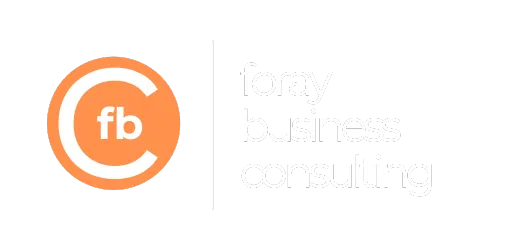
Rollover for Business Startups
ROBS (Rollover for Business Startups): A Strategic Guide for Entrepreneurs
Starting a new business can be expensive and challenging, especially when it comes to funding. One option that has gained popularity is the Rollover for Business Startups (ROBS). ROBS allows you to use funds from your retirement accounts to start or buy a business without the usual taxes or early withdrawal penalties. This method offers a unique way to finance a new venture while avoiding some common financial hurdles.
While ROBS can provide significant advantages, it requires careful setup and compliance with various regulations. It’s crucial to understand how ROBS works and what steps you need to take to ensure everything is done correctly. Working with professionals who have experience in ROBS can be incredibly beneficial.

In this article, we will explore the intricacies of ROBS, compare it to other business financing options, and discuss its benefits and drawbacks. By the end, you’ll have a clearer picture of whether ROBS is the right choice for your business startup needs.
Key Takeaways
ROBS allows using retirement funds for business without tax penalties.
It requires proper setup and compliance with regulations.
Professional guidance improves the chances of success.
Understanding ROBS
ROBS (Rollover for Business Startups) allows entrepreneurs to use retirement funds to start or buy a business without incurring taxes or penalties. We need to know how the process works, who is eligible, and the setup requirements.
Definition and Overview
ROBS stands for Rollover for Business Startups. It is a method that lets individuals use their retirement funds like a 401(k) to invest in their own business. This process is tax-free and penalty-free, making it an attractive option for many entrepreneurs.
To set up ROBS, the new business must be a C Corporation. The individual’s retirement funds are then rolled over into this C Corporation's retirement plan. This allows the person to use these funds to buy stock in the company, providing capital to the business.
How ROBS Works
The process starts by forming a C Corporation, which is a specific type of company structure that can sell stock. Then, a new 401(k) plan is created for this corporation. The funds from the individual’s eligible retirement account are rolled over into this new 401(k).
Once the funds are in the new 401(k), they are used to purchase stock in the C Corporation. This purchase provides the business with the capital it needs. This transaction is not considered a distribution, so it avoids the usual taxes and penalties associated with tapping into a retirement plan early.
Eligibility Requirements
To be eligible for ROBS, the entrepreneur must have eligible retirement funds, typically from a 401(k) or similar retirement account. The process is only applicable if the funds being rolled over amount to at least $50,000.
The new business must be structured as a C Corporation, which is mandatory for setting up the required 401(k) plan. Additionally, the entrepreneur must become an employee of their own business to comply with the plan's requirements.
We also must ensure the entire setup complies with IRS rules to avoid any legal or financial issues.
For more specific details, refer to the guides provided by Fit Small Business and NerdWallet.
Setting Up a ROBS
Setting up a Rollover for Business Startups (ROBS) involves a few key steps. These include forming a C Corporation, creating a retirement plan, rolling over retirement funds, and purchasing company stock. Each step is essential for ensuring regulatory compliance and securing needed funds.
Forming a C Corporation
First, we must form a C Corporation. This is a requirement because ROBS transactions are designed to work with C Corporations, not LLCs or S Corporations.
We begin by filing the Articles of Incorporation with the state.
Next, we obtain an Employer Identification Number (EIN) from the IRS.
It's important to draft corporate bylaws to outline the rules governing our corporation. These steps provide a legal framework for our business and enable us to sell stock, which is crucial for the ROBS setup.
Creating a Retirement Plan
Once our C Corporation is established, we have to create a new retirement plan for our employees. This is usually structured as a 401(k) plan.
We work with a plan administrator to ensure our 401(k) plan complies with all IRS and Department of Labor regulations.
The plan must allow for investments in employer stock. This feature is critical because it enables our retirement funds to be invested in our own business.
We conduct an annual audit to ensure the plan remains compliant.
Rolling Over Retirement Funds
Next, we roll over existing retirement funds into the new 401(k) plan. This can include funds from IRAs, old 401(k) accounts, or other qualified retirement accounts.
We instruct our retirement account custodian to transfer the funds to the new 401(k) plan. This process must be carefully managed to avoid any tax penalties or fines.
Working closely with a ROBS provider can help ensure the rollover is handled correctly and in compliance with all regulations.
Purchasing Company Stock
Once the funds are in the new 401(k) plan, we use them to purchase company stock in the C Corporation.
This investment effectively capitalizes our business using our retirement savings.
The 401(k) plan buys shares in our company, and the money from this stock purchase can then be used to cover business startup costs or expansions.
It's essential to follow all legal and regulatory requirements when executing this stock purchase to avoid potential pitfalls.
Having a ROBS professional guide us through this process ensures we meet all compliance requirements and avoid unnecessary risks.
Benefits and Drawbacks of ROBS
Using ROBS can be an attractive option for funding a business. It offers pros such as tax-free access to retirement funds and avoiding debt, but it also has cons, including the risk to retirement savings and the complex setup.
Pros of Using ROBS
One major benefit of ROBS is that it allows us to access our retirement funds tax-free. This helps us avoid early withdrawal penalties, which can be substantial. By using our 401(k) funds, we also avoid taking on debt, which can be crucial for a new business.
ROBS provides us with operational control over the business since we are essentially investing our own money. This can be empowering as we do not have to answer to external investors. As a result, we retain full ownership and control over our company.
Additionally, ROBS enables us to fund our business start-up without impacting our personal credit. This is important for those of us who may have credit constraints or prefer not to use personal credit for business ventures.
Cons of Using ROBS
Despite its benefits, ROBS carries significant risks, such as putting our retirement savings at risk. If our business fails, we may lose a substantial portion of our retirement nest egg, which can be devastating for our future.
The process of setting up a ROBS can be complex and may require legal and financial expertise. This complexity can also lead to higher setup and maintenance costs. Missteps in the setup process can result in serious IRS penalties.
Using retirement funds for business financing means we miss out on potential growth these funds could have earned if left in traditional retirement accounts. This opportunity cost can be significant, especially over a long period.
Moreover, ROBS is not entirely without tax implications. While setting up, maintaining compliance with the IRS rules is crucial to avoid penalties. Therefore, it is essential to fully understand the legal requirements and potential pitfalls before proceeding.
Comparing ROBS to Other Financing Options
ROBS (Rollover for Business Startups) offers unique benefits and challenges when compared to other funding methods like business loans, personal loans, and alternative sources. It's important to understand these differences to make an informed choice for your business.
ROBS vs. Business Loans and SBA Loans
When comparing ROBS to business loans, the key difference is that ROBS doesn't require repayment. You invest your retirement funds directly into your business. This means no interest rates or monthly payments which can help with cash flow.
Business loans, including SBA loans, typically require strong credit scores and collateral. They also come with interest rates and fees. SBA loans can be attractive due to their lower interest rates and longer repayment terms, but getting approved can be a lengthy and competitive process.
ROBS avoids the complications of borrowing, but it puts your retirement savings at risk. If your business fails, you could lose a significant portion of your retirement funds.
ROBS vs. Personal Loans and Credit Cards
When considering personal loans and credit cards, the biggest advantage is simplicity and speed. Personal loans can be approved quickly if you have a good credit score. Credit cards are even more accessible and can provide immediate funding for smaller expenses.
Personal loans and credit cards come with high interest rates, which can add to your financial burden. Missing payments on these can damage your credit score and lead to bankruptcy.
ROBS, on the other hand, provides debt-free financing that doesn't affect your personal credit. Yet, using ROBS means leveraging your retirement funds which can be a significant risk if your business does not perform as expected.
Alternative Funding Sources
Other funding options include angel investors, grants, lines of credit, and borrowing from friends and family. Angel investors can provide large sums of capital in exchange for equity, but this dilutes your ownership. Grants are ideal because they don't need repayment, but they can be highly competitive and difficult to secure.
Lines of credit offer flexibility and can be useful for managing cash flow, but they often require collateral and have variable interest rates. Borrowing from friends and family can be the easiest way to get funds, but it may strain personal relationships if the business doesn’t succeed.
ROBS distinguishes itself by offering a source of capital that doesn't involve taking on debt or giving up equity, making it a unique but risky choice among these options.
Operating a Business Funded by ROBS
Using a ROBS to fund a business involves careful planning and management. We must focus on the structure of the company, the role of employees, and regularly assessing our progress.
Business Operations and Revenue
Running a business with ROBS funding requires us to set up a C Corporation. This is mandatory because only a C corporation can sell stock, which is essential for the ROBS structure. Once established, the retirement funds are used to buy company stock, providing the necessary capital to get the business off the ground.
Revenue Generation is crucial from the start. It's critical to track revenue sources closely, whether from product sales, services, or other means. Knowing our income streams helps ensure the business stays viable and profitable. We also need to comply with IRS regulations to avoid penalties, keeping our financials transparent and accurate.
Employee Roles and Shareholders
Employees play a significant role in the success of a ROBS-funded business. As a C corporation, our business can issue stock, making us and our employees shareholders. This can align motivations toward the company's growth.
Assigning clear, defined roles helps keep operations running smoothly. For instance, we may have managers overseeing day-to-day activities, while others handle sales, marketing, or customer service. If we are also key employees, it is vital to balance strategic planning with operational duties.
Transparency with employees about their roles and the company's performance is important. This builds trust and ensures everyone works toward shared goals. Additionally, offering incentives like stock options can boost morale and performance.
Evaluating Business Progress
Regularly evaluating our progress is essential to ensure the business meets its goals. We can set quarterly or monthly targets for revenue, customer growth, and other key performance indicators (KPIs).
Tracking these KPIs helps us understand what strategies are working and where adjustments are needed. Using tools like business analytics software can provide real-time insights into our performance.
Regular reviews with employees and shareholders keep everyone informed about the business's health. This practice promotes accountability and helps us make informed decisions about future actions like expanding operations or refining marketing strategies. By staying on top of our progress, we can adapt and thrive in the competitive market.
Professional Guidance and Support
To effectively utilize Rollover for Business Startups (ROBS), it's crucial to seek help from knowledgeable professionals. This includes consulting financial advisors, selecting reliable ROBS providers, and ensuring ongoing management for compliance with IRS and Department of Labor regulations.
Consulting with Financial Advisors
Consulting with financial advisors helps us understand the complexities of ROBS. Advisors can explain potential risks and benefits and assess whether ROBS is the right fit for our business. It's important to work with advisors who are familiar with IRS regulations and Department of Labor rules. They can guide us through tax implications and help structure our retirement plan correctly to avoid penalties.
Choosing a Reliable ROBS Provider
Selecting a reliable ROBS provider is essential for a smooth setup and ongoing compliance. Providers like Guidant Financial offer comprehensive support, including legal and audit assistance. When choosing a provider, we should look for those with strong customer service records and experience in handling ROBS plans. Effective providers help manage the entire process, from setting up a C corporation to transferring retirement funds.
Ongoing Management and Compliance
Maintaining compliance with IRS and Department of Labor regulations is crucial when using ROBS. This involves regular monitoring and reporting. Professional guidance ensures we're meeting all requirements and avoiding non-compliant practices. Providers and financial advisors help us navigate these complexities, ensuring that our ROBS plan remains in good standing. Regular reviews and audits can prevent issues and ensure smooth operation.
Frequently Asked Questions
We've gathered some essential questions about the Rollover for Business Startups (ROBS) to help you better understand this business funding method. We'll cover benefits, risks, and important regulations to keep in mind.
What are the advantages and disadvantages of using a Rollover for Business Startups (ROBS)?
One major advantage of using a ROBS is the ability to fund a business without taking on debt. This setup is tax-free and can provide a significant amount of capital.
On the downside, the process can be expensive and complex. There's also the risk of losing retirement funds if the business fails.
Can a ROBS be utilized to acquire an existing business?
Yes, a ROBS can be used to buy an existing business. This transaction follows the same basic steps as funding a new startup.
However, it’s crucial to ensure the existing business qualifies under ROBS regulations. Thorough due diligence is necessary before proceeding.
Are there any prohibited transactions individuals should be aware of when participating in a ROBS?
Certain transactions are strictly prohibited with a ROBS. These include self-dealing, where you roll your retirement funds into businesses owned by family members.
Additionally, using the funds for personal expenses or benefits beyond the business is not allowed. It's vital to follow IRS guidelines to avoid penalties.
What are the potential risks or downsides associated with a Rollover for Business Startups?
Potential risks involve the loss of retirement savings if the business fails. There are also ongoing administrative and compliance costs.
Moreover, falling out of compliance with IRS regulations can lead to significant penalties and tax liabilities. These risks should be weighed carefully before committing to a ROBS.
How does one properly exit a ROBS arrangement?
Exiting a ROBS arrangement involves several steps. One common method is to sell the business, paying off any existing account balances and liabilities.
Another option is converting the business into a different type of retirement plan or rolling the funds back into a traditional retirement account. It’s important to consult with financial advisors to ensure a smooth exit.
What are the eligibility requirements for a business to be structured as an S Corporation under a ROBS plan?
To qualify as an S Corporation under a ROBS, the business must meet specific requirements. These include being a domestic corporation and having no more than 100 shareholders.
All shareholders must be eligible persons, which generally means they must be individuals, certain trusts, or estates. The business must also have only one class of stock. Meeting these conditions is crucial for proper structuring under a ROBS.
GET FUNDED IN 1-2-3 EASY STEP
Checking your rate won’t affect your credit score

Apply Online
- Fast & Easy Online Application Our loan specialist will contact you Or call us at our phone number: (905) 594-1139

Review Your Options
-You will have your decision in minutes. No paperwork, no waiting

Get Funded
- True term loans – $5,000 – $1,000,000 Receive funding in as fast as 1 day
Foray Business Consulting © | ALL RIGHTS RESERVED | LOANS SUBJECT TO LENDER APPROVAL
The operator of this website is NOT a lender, does not make offers for loans, and does not broker online loans to lenders or lending partners. Customers who arrive at www.foraybusinessconsulting.com are paired with a lender or a lending partner, and redirected only to lenders or lending partners who offer business loan products.

